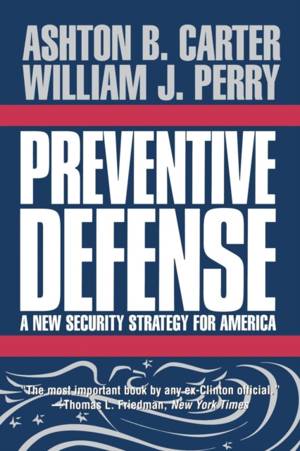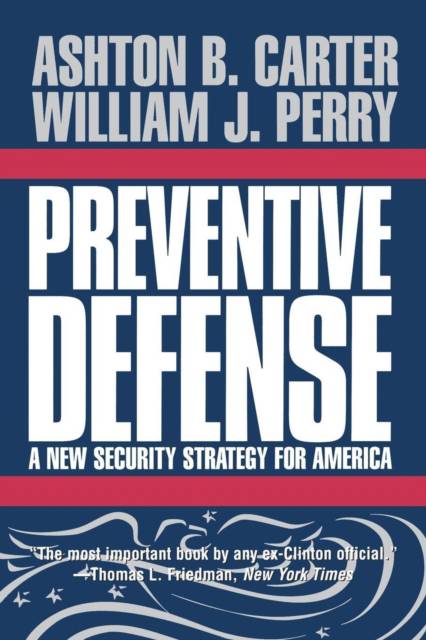
- Retrait gratuit dans votre magasin Club
- 7.000.000 titres dans notre catalogue
- Payer en toute sécurité
- Toujours un magasin près de chez vous
- Retrait gratuit dans votre magasin Club
- 7.000.000 titres dans notre catalogue
- Payer en toute sécurité
- Toujours un magasin près de chez vous
Preventive Defense
A New Security Strategy for America
Ashton B Carter, William J PerryDescription
William J. Perry and Ashton B. Carter, two of the world's foremost defense authorities, draw on their experience as leaders of the U.S. Defense Department to propose a new American security strategy for the twenty-first century. After a century in which aggression had to be defeated in two world wars and then deterred through a prolonged cold war, the authors argue for a strategy centered on prevention. Now that the cold war is over, it is necessary to rethink the risks to U.S. security. The A list--threats to U.S. survival--is empty today. The B list--the two major regional contingencies in the Persian Gulf and on the Korean peninsula that dominate Pentagon planning and budgeting--pose imminent threats to U.S. interests but not to survival. And the C list--such headline-grabbing places as Kosovo, Bosnia, Somalia, Rwanda, and Haiti--includes important contingencies that indirectly affect U.S. security but do not directly threaten U.S. interests. Thus the United States is enjoying a period of unprecedented peace and influence; but foreign policy and defense leaders cannot afford to be complacent. The authors' preventive defense strategy concentrates on the dangers that, if mismanaged, have the potential to grow into true A-list threats to U.S. survival in the next century. These include Weimar Russia: failure to establish a self-respecting place for the new Russia in the post-cold war world, allowing it to descend into chaos, isolation, and aggression as Germany did after World War I; Loose Nukes: failure to reduce and secure the deadly legacy of the cold war--nuclear, chemical, and biological weapons in Russia and the rest of the former Soviet Union; A Rising China Turned Hostile: failure to shape China's rise to Asian superpower status so that it emerges as a partner rather than an adversary; Proliferation: spread of weapons of mass destruction; and Catastrophic Terrorism: increase in the scope and intensity of transnational terrorism.They also argue for"
Spécifications
Parties prenantes
- Auteur(s) :
- Editeur:
Contenu
- Nombre de pages :
- 256
- Langue:
- Anglais
Caractéristiques
- EAN:
- 9780815713074
- Date de parution :
- 01-09-00
- Format:
- Livre broché
- Format numérique:
- Trade paperback (VS)
- Dimensions :
- 153 mm x 230 mm
- Poids :
- 362 g







